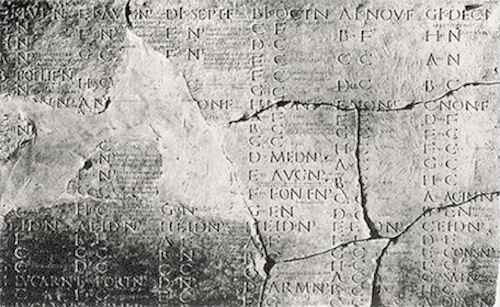
Even though his time of infallible power was brief, Julius Caesar, like Jesus Christ, became a man after whom time is computed.
CLICK HERE to read article: The Assassination of Julius Caesar
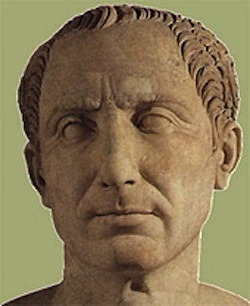
Our month of July is named after Julius whose birthdate was July 12 or 13, 100 BC. While in Egypt with Cleopatra (48-46 BC), Caesar recognized the superiority of the Egyptian way of calculating time based on the movements of the sun rather than the Roman AUC (Ab Urba Condito–From The Founding Of The City of Rome) calendar based on lunar movements. Our calendar still calls a “month” a maenon from the ancient word for “moon” as a measurement of time. The advanced Egyptians determined the tropical year at 365 days, very close to the actual calculation of 365.24219 days. Caesar’s years spent with the Egyptian queen Cleopatra and her astronomer Sosigenes convinced him to institute a calendar based on Alexandrian reckonings when he returned to Rome.
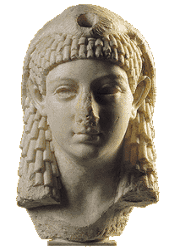
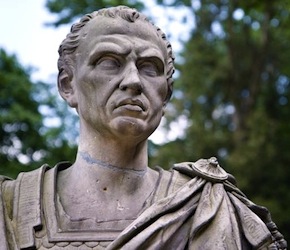
The 52-year-old Caesar spent enough time with the 22-year-old Cleopatra to have a child by her named Caesarion, but unlike his luckless cousin Mark Antony, Caesar was not to be deterred from his destiny by the considerable charms and arms of Cleopatra. When he returned to Rome, he initiated the Egyptian calendar in c. 45-46 BC. The Roman AUC calendar had been so inaccurate that even though Caesar had crossed the Rubicon on January 10, 49 BC, several years later that date fell in mid-Autumn. The Egyptian calendar was a simple one of 365 days with an extra day (an intercalary leap year day) every fourth year in order to make up for the drift of the vernal equinox. Caesar wanted the new calendar to begin with his rule, but the Senate had always started a new year on January 1, the month named after the god Janus who had two faces, one looking ahead to the future and the other looking back to the past.
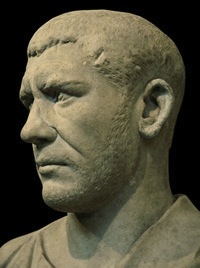
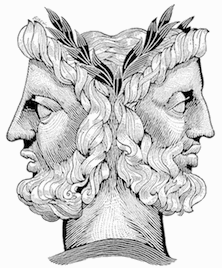
The Senate won that fight and modern New Years always commence on January 1. The Julian calendar and its ease of use were an immediate success in the Roman world. Only nine years after its initiation, the Roman scholar and writer Varro (116-27 BC) was using the system to fix dates for the start of seasons. Within a hundred years after its introduction, the Julian calendar was the staple of time in the Roman Empire and would be used by the civil world for over 1,600 years.—Sandra Sweeny Silver
